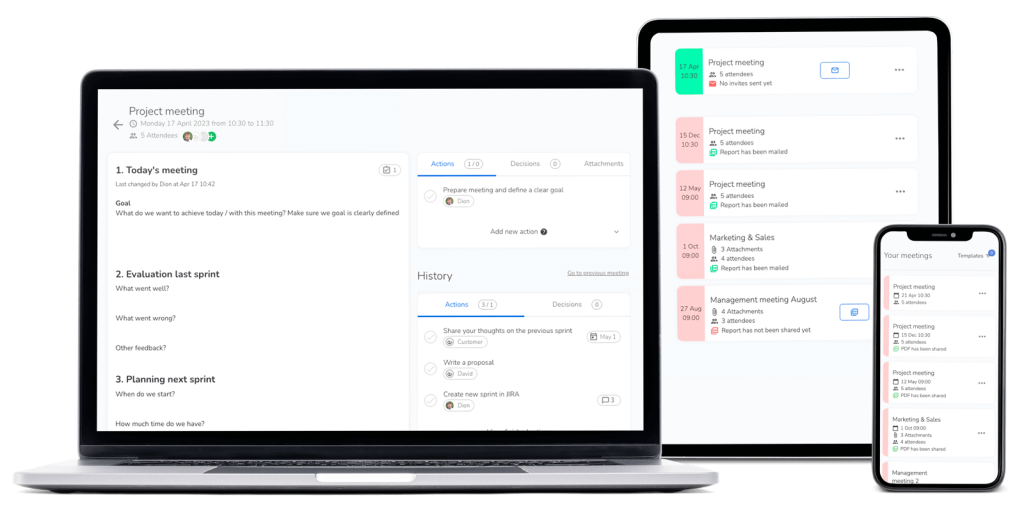In the contemporary professional landscape, meetings have become a ubiquitous feature of organizational life. Whether virtual or in person, they are meant to serve as forums for collaboration, information sharing, and decision-making. However, a growing consensus among employees and executives alike suggests that many of these meetings are, unfortunately, unproductive. This phenomenon has gained so much recognition that it has spawned a plethora of memes and jokes across social media platforms, highlighting the shared experience of enduring unproductive meetings. In this article, we delve into the reasons behind the prevalence of unproductive meetings, provide examples that resonate with many professionals, and explore the concept of Topical Meetings as a potential solution to reclaim productivity in the workplace.
The Unproductive Meeting Landscape:
- Lack of Clear Objectives:
One of the primary culprits behind unproductive meetings is the absence of clear objectives. Meetings often commence without a defined purpose or agenda, leaving attendees uncertain about what is expected of them. As a result, discussions veer off course, precious time is wasted, and attendees leave without a clear understanding of the meeting’s outcomes. Example: Imagine a marketing team meeting called to discuss a new campaign, but without a pre-defined agenda. Without clear goals, the discussion may devolve into tangential topics, resulting in a lack of actionable takeaways. - Over-reliance on Traditional Formats:
Many organizations adhere to traditional meeting formats without considering whether they are the most effective for the task at hand. The conventional hour-long, sit-down meeting may not be the most suitable format for every discussion, leading to disengagement and reduced productivity. Example: Routine status update meetings that follow the same format every week can become monotonous, leading to diminished engagement and a lack of meaningful contributions from participants. - Excessive Attendance:
The more, the merrier is not always the case when it comes to meetings. Having too many attendees, especially those who don’t directly contribute to the agenda, can hinder productivity. Each additional participant increases the likelihood of off-topic discussions and prolongs the meeting unnecessarily. Example: A project kick-off meeting with representatives from every department, including those not directly involved, can lead to a crowded room where crucial decisions are delayed due to irrelevant discussions. - Inadequate Preparation:
Meetings suffer when participants come unprepared. Whether it’s not having read relevant documents or not being familiar with the agenda, lack of preparation results in discussions that don’t move the needle. Example: A product development meeting where team members haven’t reviewed market research or competitor analysis may lead to uninformed decisions and hinder the progress of the project. - Dominance of the Loudest Voice:
In some meetings, the person with the loudest voice or strongest personality can dominate the conversation, stifling input from others. This dynamic not only results in an uneven distribution of ideas but can also lead to the neglect of valuable perspectives. Example: A strategy meeting where a senior executive dominates the discussion may result in team members hesitating to express dissenting opinions, leading to a lack of critical evaluation of proposed strategies.
The Topical Meeting Solution:
Topical Meetings present a promising antidote to the epidemic of unproductive meetings. Unlike traditional meetings, which tend to be generic and one-size-fits-all, Topical Meetings are tailored to specific objectives and are designed to be more focused, efficient, and outcome-oriented.
- Clear and Defined Objectives:
Topical Meetings start with clear and well-defined objectives. Participants know exactly what needs to be achieved, fostering a sense of purpose and direction. This clarity minimizes the risk of drifting off-topic and ensures that everyone is aligned towards a common goal. Example: A Topical Meeting focused on refining a new product feature would have a clearly articulated objective, such as identifying potential user pain points or optimizing the user interface. - Flexible Formats:
Recognizing that not all discussions require the same format, Topical Meetings embrace flexibility. Whether it’s a quick stand-up huddle, a brainstorming session, or a structured problem-solving workshop, the format is chosen based on the specific needs of the topic at hand. Example: A Topical Meeting to discuss project timelines might benefit from a brief stand-up format to ensure a quick exchange of information and keep participants focused on key deadlines. - Strategic Attendance:
Topical Meetings are characterized by strategic attendance. Only individuals directly relevant to the topic are invited, ensuring that the right people are present to contribute meaningfully. This targeted approach minimizes distractions and maximizes the efficiency of the meeting. Example: A Topical Meeting on budget allocation for a project would involve representatives from finance, project management, and relevant departments, avoiding unnecessary participants who may derail the discussion. - Preparation is Paramount:
Topical Meetings prioritize preparation. Participants are expected to familiarize themselves with the agenda and relevant materials beforehand, ensuring that the meeting time is dedicated to productive discussions rather than catching up on essential information. Example: A Topical Meeting to discuss a new marketing strategy would require participants to review market research and competitor analyses beforehand, facilitating informed and constructive discussions. - Equal Participation:
The structure of Topical Meetings encourages equal participation. Rather than allowing a single voice to dominate, these meetings provide opportunities for everyone to contribute. This inclusivity ensures that diverse perspectives are considered, leading to more well-rounded and informed decisions. Example: A Topical Meeting focused on refining a customer service process would involve input from frontline staff, managers, and customer feedback analysts, ensuring a holistic view of the challenges and potential solutions.
In conclusion, the prevalence of unproductive meetings in the professional sphere is a well-acknowledged challenge. From vague objectives to excessive attendance and inadequate preparation, the reasons behind this epidemic are numerous. However, the concept of Topical Meetings offers a promising solution by addressing these issues head-on. By providing clear objectives, embracing flexible formats, ensuring strategic attendance, prioritizing preparation, and promoting equal participation, Topical Meetings have the potential to revolutionize the way organizations conduct meetings. As professionals seek ways to make their collaborative efforts more meaningful and efficient, the adoption of Topical Meetings may be the prescription needed to transform unproductive meetings into sessions that drive innovation, collaboration, and success.













